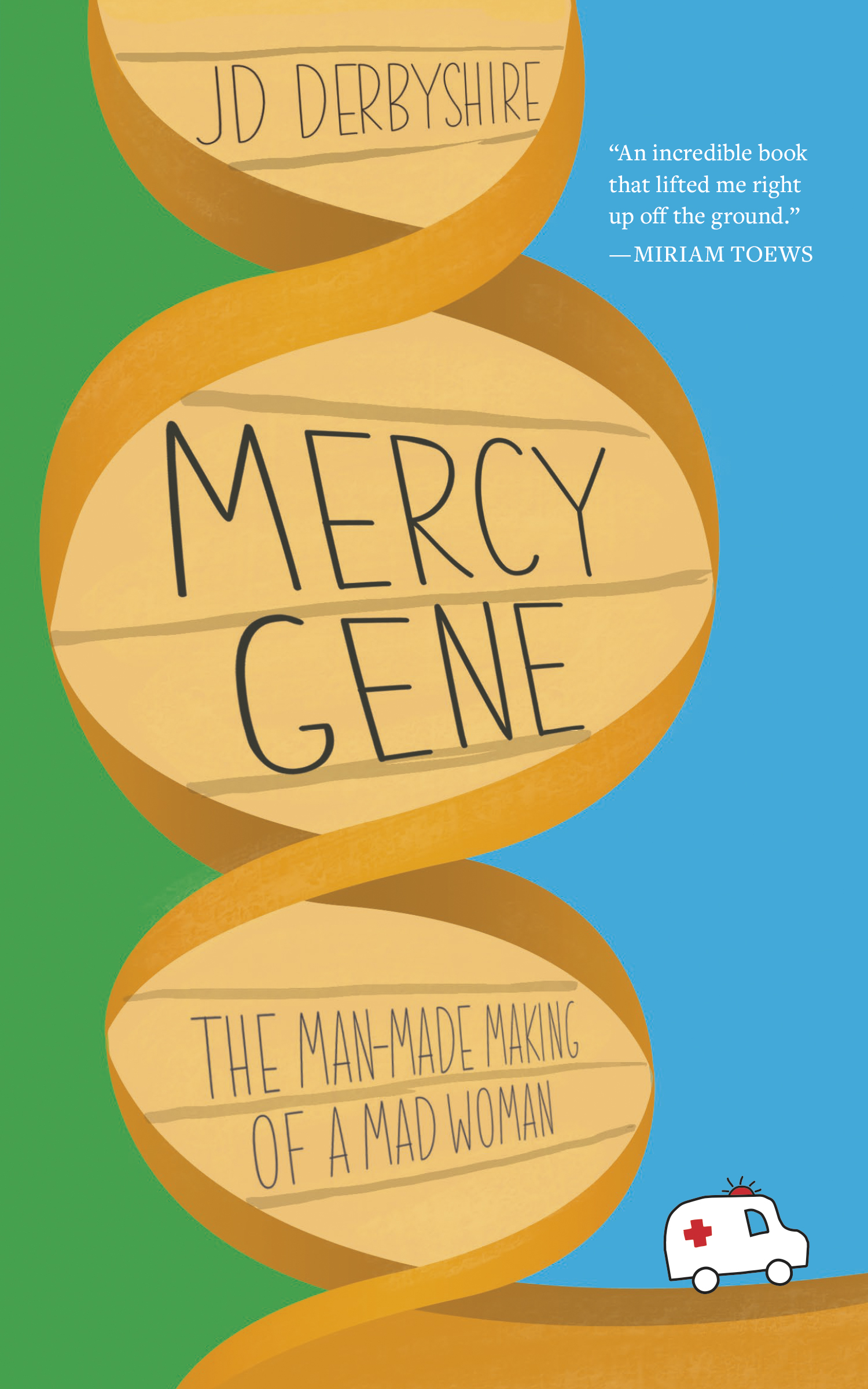Mercy Gene: The Man-Made Making
of a Mad Woman
by JD Derbyshire
Goose Lane Editions
224 pages
$24
In Mercy Gene: The Man-Made Making of a Mad Woman, Vancouver-based artist-activist JD Derbyshire shares stories based on their own life, focalizing experiences of the psychiatric system as they grapple with ethical and epistemological questions about mental illness through a creative and deeply personal lens. Adapted from Derbyshire’s solo theatre piece, Certified, this work of autofiction exceeds the conventions of a typical novel, playing with language, form, and narrative point of view as it reflects upon and reimagines impactful moments in the protagonist’s life. One moment that Derbyshire returns at several points throughout the book is a teenage experience of sexual assault perpetrated by a group. Readers are encouraged to take the care they need when navigating this difficult read.
Through an assemblage of poems, essays, lists, and vignettes, we come to know the protagonist through both assigned and chosen names (as well as pronouns), with each name representing different aspects of their identity and experience. Derbyshire’s decision to use the protagonist’s many names (sometimes using them interchangeably within a single sentence) resonates with their meditations on both the power and limitations of language. The motif of language and naming appears continuously throughout this memoir novel mix, providing a framework for understanding medical diagnosis, as well as gender and identity. Reflecting upon the ways in which individuals make themselves legible through language, the narrator shifts from third- to first-person to say that “JD uses the pronouns they/them because it’s all they’ve got,” before ultimately admitting, “[t]he truth is, I haven’t found language that fits, but I have found clothes that fit, so that’s something.”
Thinking through language shapes Derbyshire’s understanding of mental illness in addition to gender, as for them, psychiatric diagnosis is an act of naming. After decades of silence, when the protagonist finally discloses to a doctor her adolescent experience of sexual violence, “[p]sychiatry asks what’s wrong with her, not what happened to her.” As the protagonist awaits “a nod to the horror of what happened,” the psychiatrist busies himself with “flipping through a big book of psychiatric disorders, looking for her new name.” Assigning a diagnosis, for Derbyshire, reduces experiences to a simple label, locating deficiency within individual patients as it removes them from broader social contexts and ignores their experiences of trauma.
While Mercy Gene interrogates medical authority in matters of madness, its message is not wholly anti-psychiatric. Rather, it exposes the danger and limitations of assigning a singular and simplifying diagnostic name, and in so doing, Mercy Gene invites space to hold people and their experiences in their entirety. Through reporting, reflecting upon, and reimagining stories from throughout the protagonist’s life, it works toward repairing and reclaiming both personal and collective histories of sanism, ableism, transphobia, and misogyny. Situated in a thrillingly generative space between reality and the fantastical, this absorbing read makes room for sitting with pain and dreaming toward a future of resistance and care.














